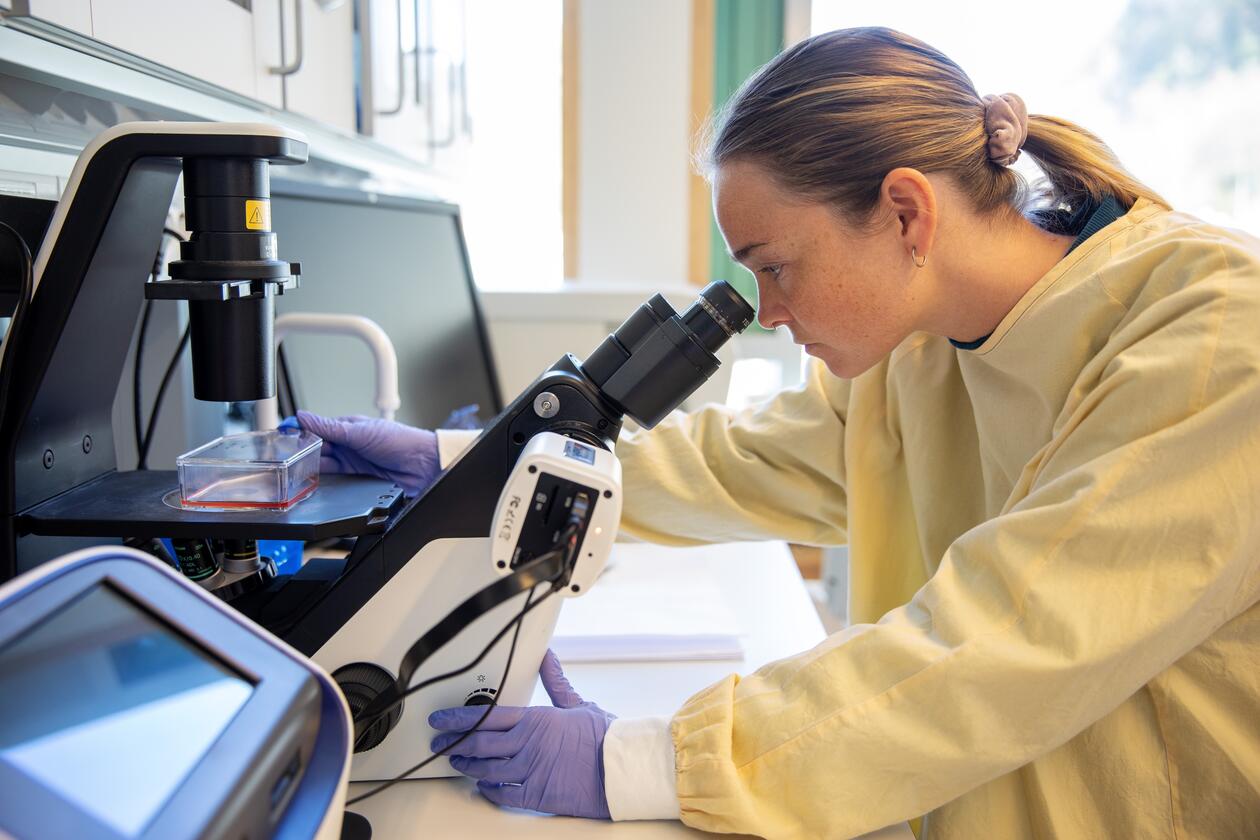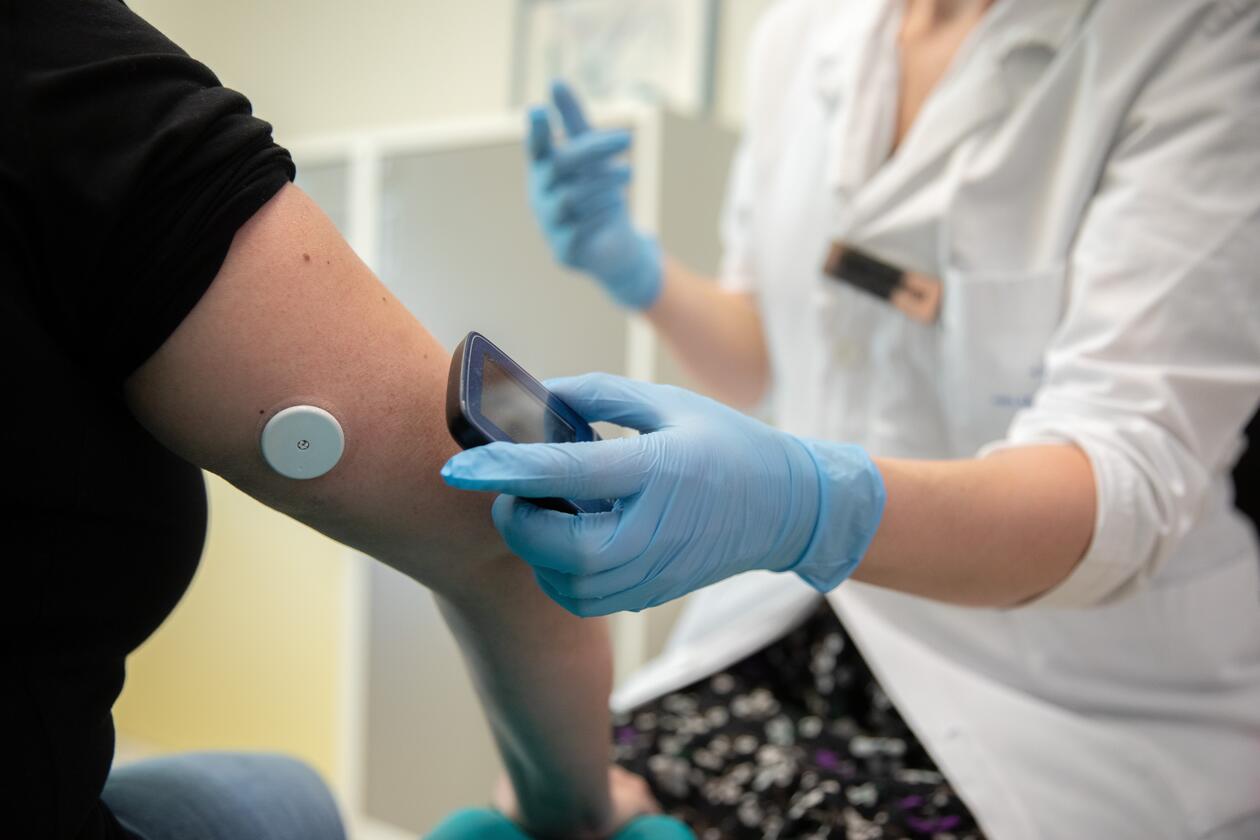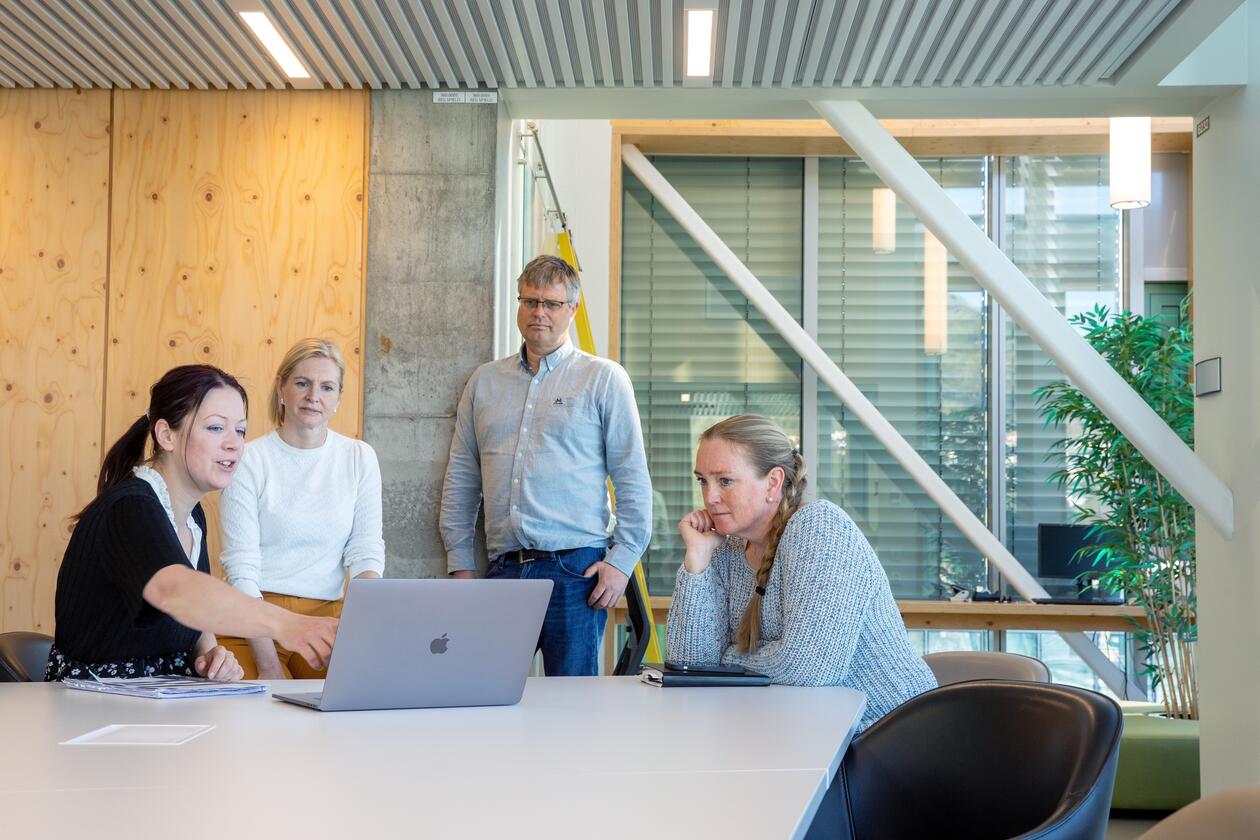More precise treatment for diabetes patients
A new research center at UiB will provide diabetes patients with more precise diagnoses and better treatment of the disease. "Most diabetes patients live good lives. But diagnosis and treatment can be better, and we wish to contribute to that", says center manager Pål R. Njølstad.

Main content
The Trond Mohn Foundation is joining forces with the University of Bergen and Haukeland University Hospital to provide NOK 52 million in funding over the next five years.
Diabetes is one of the most common diseases both here in Norway and around the world. Around 350,000 Norwegians and 540 million people worldwide have been diagnosed with diabetes. Major advances have been made in diabetes research in recent years. Among other things, more than 500 gene variants have been identified that are associated with the most common types of diabetes, i.e. type 1 and type 2.
"The current classification of diabetes is not precise enough, and we do not understand all the basic mechanisms of the disease. For example, obesity is a major risk factor but not all obese diabetes patients develop high blood pressure or heart disease. The vision of the new research centre (DDIA) is to develop methodology that enables us to provide customised, unique treatment for individuals, what we call precision medicine", says Njølstad.Diabetes can be seen as many different diseases with different causes and mechanisms, which differ over the course of a lifetime, from foetus to death. More knowledge about what causes diabetes, better classification and insight into the mechanisms of diabetes development at different stages of life are key to being able to give every patient the treatment he or she needs.
Better classification of different types of diabetes
A group of around 30 researchers at the new centre will study the causes of diabetes development over the course of a lifetime. It will integrate genetics and cell biology with clinical information from the major resources represented by the newly-established Norwegian Diabetes Biobank (Norwegian DiaBank), the Norwegian Diabetes Register for Adults, the Norwegian Maturity-Onset Diabetes of the Young Register (MODY), the Norwegian Childhood Diabetes Registry and the Norwegian Mother, Father, and Child Cohort Study (MoBa).
"These data will be aligned to a range of population-based registries in Norway, such as the Cause of Death Registry, the Norwegian Prescription Database, the Cancer Registry of Norway, Statistics Norway’s register of national insurance events (FD-trygd) and the Norwegian Patient Registry. Our centre will identify new causes and mechanisms and lay the foundation for a better classification system for diabetes, which, in turn, will give us better diagnostic tools and therapeutic strategies for improving diabetes care", says Njølstad.
Experts in clinical medicine, genetics, cell biology and bioinformatics will join forces on three different research programmes to reach this goal. Professor Valeriya Lyssenko and Professor Gunnar Mellgren will be deputy heads of the centre. The centre will involve recognized research communities in the Nordic countries, Germany, Switzerland, the UK and the US in its research.
Proud of the research community in Bergen
DDIA will be located at a joint laboratory in the Glass Blocks in the new Children and Youth Clinic at Haukeland University Hospital, with the necessary registries, biobanks, and clinical research units nearby.
"We are delighted to be able to host the new centre, and grateful for the contribution from the Trond Mohn Foundation, which makes it all possible", says CEO of Helse Bergen health trust, Eivind Hansen. "It’s great that this will also enable us to draw greater advantage from the established knowledge arenas at Haukeland University Hospital."
Margareth Hagen, Rector of the University of Bergen, also has a great deal of confidence in the diabetes researchers.
"We are proud that Bergen is succeeding in attracting and building internationally outstanding expertise in this field, and we look forward to following the centre’s development and the results of the research they are about to embark on. This is yet another step that puts communities in Bergen at the forefront of precision medicine", she says.
Supports outstanding research
Sveinung Hole, CEO of Trond Mohn stiftelse, photo: Paul S. Amundsen/TMS
"A diabetes research community of a very high international calibre has been developed in Bergen over many years. The Trond Mohn Foundation has brought in some of the best researchers in the world to evaluate this new initiative. Their conclusion is that the community in Bergen has unique resources and preconditions for developing precision diagnostics and treatment for the benefit of a great many patients. This is a major and important initiative for the Foundation, which we look forward to following in the years to come", says CEO of the Foundation, Sveinung Hole.
"Since its establishment in 2004, the Trond Mohn Foundation has provided a total of more than NOK 1.6 billion in funding to almost 200 research projects. The projects have been selected based on the universities and university hospitals own assessments and prioritization of important fields of research. The new centre under the auspices of the University of Bergen and Haukeland University Hospital, is next in a long line of investments benefitting society," underlines Hole.
Click the link to see a news-feature on TV 2 Nyhetene (in Norwegian): https://www.tv2.no/nyheter/14834477/


